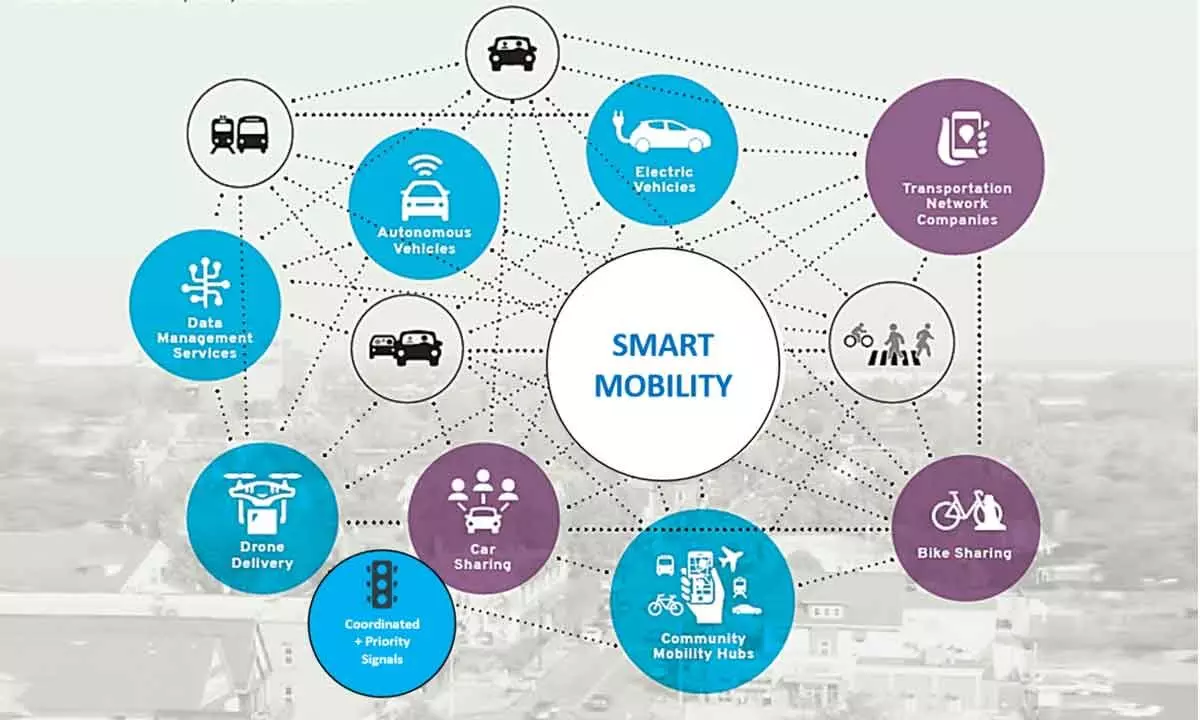Development of sustainable mobility ecosystem is need of the hour
The auto sector must involve local suppliers, global investors and energy industry players
image for illustrative purpose

Moreover, the charging station infrastructure, battery swapping stations, promotion of sustainable fuels like ethanol and biodiesel, sustainable mobility technologies, hydrogen fuel cells and autonomous vehicles will ensure that the category not only grows from the private space but also with ambitious government support. The auto industry buoyed by these multi-layered approaches could help achieve the target much in advance
Stakeholders of the automobile industry have welcomed Prime Minister Narendra Modi’s take on development of a sustainable mobility ecosystem. While addressing SIAM, Modi acknowledged the role of the auto industry in the country's growth and stressed the need to develop a sustainable mobility ecosystem. This gains further credence as electric vehicles represent the future of transportation and lead to a brighter and greener future.
Bizz Buzz interacted with a number of people in the industry to know their views on the topic.
Shailendra Singh Rao, founder of Creduce says, “Tata Motors plans to invest $2 billion in EVs over the next four years while Mahindra & Mahindra will pump in ₹15,000 crore over the next five years. These are just the two of the scores of other firms announcing their EV missions. Even the Union Government is targeting that 30 per cent of sales of all new vehicle ought to be electric by 2030.”
Moreover, the charging station infrastructure, battery swapping stations, promotion of sustainable fuels like ethanol and biodiesel, sustainable mobility technologies, hydrogen fuel cells and autonomous vehicles will ensure that the category not only grows from the private space but also with ambitious government support. The auto industry buoyed by these multi-layered approaches could help achieve the target much in advance.
The Centre is actively driving the adoption of sustainable mobility through flex fuel promotion, green hydrogen utilization and various incentives to both manufacturers and buyers through FAME and Production Linked Incentives (PLI).
The Indian auto industry is aligning with these initiatives, investing in and developing vehicles and engines for flex fuel. Some manufacturers are concentrating on electric vehicles, while others are venturing into large commercial vehicles powered by green hydrogen technology.
Sumeru Shah – Business Head, EV Two-Wheeler, Ecofy, says, “We at Ecofy, India’s first green-only NBFC provide a sustainability-focused EV financing product that goes beyond just purchasing an electric vehicle. Our holistic approach centres around extending the vehicle's lifespan and ensuring the asset's second life through bundled offerings of warranties and buybacks all of which contributes to promoting sustainability.”
To truly make a significant impact on creating a greener environment, these new technologies must gain mass appeal and achieve economies of scale.
The auto sector can drive this EV revolution by collaborating with local suppliers, global investors, and players in the energy industry to build a widespread charging infrastructure. In addition investing heavily in research and development to improve battery technology is critical for the success of EVs.
Rohan Shravan, founder and CEO of Tresa Motors, says, “Tresa Motors is dedicated to adopting e-mobility in accordance with the sustainability objectives set by the government here. Our vision extends beyond vehicle manufacturing as we strive to create a future where efficiency and sustainability are seamlessly integrated.”
Our line of medium and heavy electric trucks, proudly manufactured in India, marks a substantial advancement in the commercial vehicle sector, providing remarkable power, efficiency, and eco-friendly advantages, he said.

